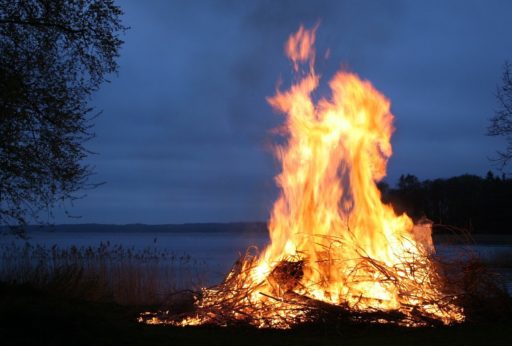At the start of the pandemic, I, too, thought I might die of it. Statistically, I knew, mere misery was likelier than outright death. So what scared me most were reports of “brain fog,” people saying they weren’t able to think straight for weeks after infection.
Locked-in syndrome was the scariest thing I ever learned about in medical school. You stay conscious, but you can’t express yourself in any way, not even a finger twitch. Less severe, speech-focused forms are known as aphasia.
No speech. Maurice Ravel got in a taxi accident, and he could not get his music out of his head forever after. He died while having brain surgery. His musical aphasia haunted me for years. I published a poem about it long ago (in The Able Muse) but never collected it.
Notes in his ear like motes in his eye, His pencil a pin in pursuit of a fly— Such were the secrets Maurice Ravel In his last lost years was dumb to tell. Aphasia, Parisian neurologists said, From that taxi crash when you bumped your head. The knock will dissolve like the clang from a bell, And you’ll be, once again, Maurice Ravel. Notes afloat in the fog, in the air, Boleros in mind too lively to bear Unborn, unwritten, stilled by the spell That quelled and ensorcelled Maurice Ravel. Begetting, forgetting themselves in his brain, They were cats, and he patted his lap in vain. An audience rose to applaud Ravel. The Ravel they beheld was a wraith of himself. Dementia, the doctors of Paris opined. Old age has unraveled your musical mind. The music you hear is the sea in a shell. The music you wrote is forever Ravel. He went to a surgeon, who would not cut. He went to another, who gave a shrug, Skeptical whether a scalpel would help The music escape its cell in Ravel. The roof of the prison was lifted off, A bowler of bone incised and doffed. With the sound of a radio dropped in a well, The last lost works of Maurice Ravel Floated aloft in the surgical suite, Boleros unbound, too lovely to keep, Ravel revealing, in surges and swells, An oeuvre unrivalled by early Ravel— Nocturnes that added a star to the night, Impromptus that luck would be lucky to write While his breathing slowed, and heart rate fell, Releasing the soul of Maurice Ravel.
But here I am, still thinking about it, years later. Imagining, with a shudder, language stripped from me. Death or stroke or infectious brain fog: There are so many ways to be silenced.
So the great voluntary silences in literature baffle me. Some really did just give this art up. For Gerard Manley Hopkins, burning his poems put away childish things so he could focus on the priesthood. Philip Larkin felt the Muse had moved on and didn’t write for the last ten years of his life. Virgil, on his deathbed, ordered the Aeneid burned. Kafka, in his will, asked the same manuscript-holocaust from Max Brod.
Voluntary silence, the bonfire of one’s literary vanities: I would have to change profoundly before I got to that psychological place. For all my obsessive religious studies, literary immortality may be the only kind I really believe in. No meat, no alcohol, no caffeine, no smoking—ascetic self-restraints, but only the kinds I like. Do they even count? I am a lush when it comes to language.
The most word-drunk, metaphorically euphoric poet of all went silent the last three years of his life. Shakespeare’s biographers relate his ignominious pursuit of respectability. Consider that made-up, touchily mottoed coat of arms—N’y sans droict, “Not Without Right”—as in, I really do deserve this. So what if I made my money among disreputable theater people in the big city? (Playwrights were considered lowlifes, too; Ben Jonson had to read a “neck verse” to evade the noose, and Marlowe died in a barfight.) Shakespeare, longing to be an upstanding citizen, dealt in grain and built his village’s biggest house.
He wrote nothing after returning to Stratford-upon-Avon in early 1613. Just seven years before, he had written King Lear. And then he just—retired. No urge to see if he could match or outdo it; no imperative to map the abysses he had discovered; no impulse, even, to fool with the language. Forty-nine! Just seven years older than I am now. You could give me sharp vision and a fogless mind until ninety-four, and it wouldn’t be enough to read and write all I want to.
Later that same year, the Globe theater burned down. Did he get word of it? During a performance, cannons were fired off, and the paper that stuffed them floated onto the theater’s thatched roof.
And, like the baseless fabric of this vision, The cloud-capp’d towers, the gorgeous palaces, The solemn temples, the great globe itself, Ye all which it inherit, shall dissolve And, like this insubstantial pageant faded, Leave not a rack behind.
Shakespeare’s valedictory play, The Tempest, has that pun on the “Globe,” uncannily foreshadowing the fire. But The Tempest wasn’t the last play he worked on. The latest text in the First Folio was a collaboration, Henry VIII—the play performed the day the Globe burned down. The playhouse lost its playwright the way a body loses its soul. It was a kind of cremation.
The rest is silence. Stare at Hamlet’s last words long enough, and they start to go strange. At first glance, rest is the remainder, what’s left: eternity, that is, death. No verses there, no versus either, as in, no conflict. No iambs there, either. No I am.
But then I wonder: Isn’t rest something you do before you work again? Another old meaning for rest is stay: “God rest ye” means “God keep ye.” Continuity, not completion. By 1570, the term rest had entered English musical parlance. The musical rest signifies the absence of sound. It is not silence, it is a silence, of a specified length, with a role in the ongoing composition. If music be the food of love, play on.
The silence is a rest. The arrested sentence proves a line-break. The wood of the pyre gets repurposed for a cradle in another country. Forest fire feeds forest future. Max Brod never did burn Kafka’s manuscripts. Nor did Augustus let Virgil’s literary executors burn the lines that burned Troy. The ongoing immolation is time and neglect, but a few books flap their covers and take wing off the bonfire. From the ashes of the great Globe, a phoenix: Stray quills flutter onto desks scattered in time. The feathers get up and dance a jig on the paper.
Abandoning or abandoned by the Muse, that is a consolation devoutly to be wished: That even the silence of death may be only a musical rest.
In Shakespeare’s day, the musicians struck up after the end of every play at the Globe, even a play where Act Five was a slaughter. The characters covered in stage blood got up and danced a jig on the stage. It was a kind of rebirth.
Amit Majmudar’s next books include a historical novel, The Map and the Scissors (HarperCollins India, 2022) and Twin A: A Memoir (Slant Books, 2022). His first book for younger readers, Heroes the Colour of Dust, is out from Puffin India this month.





